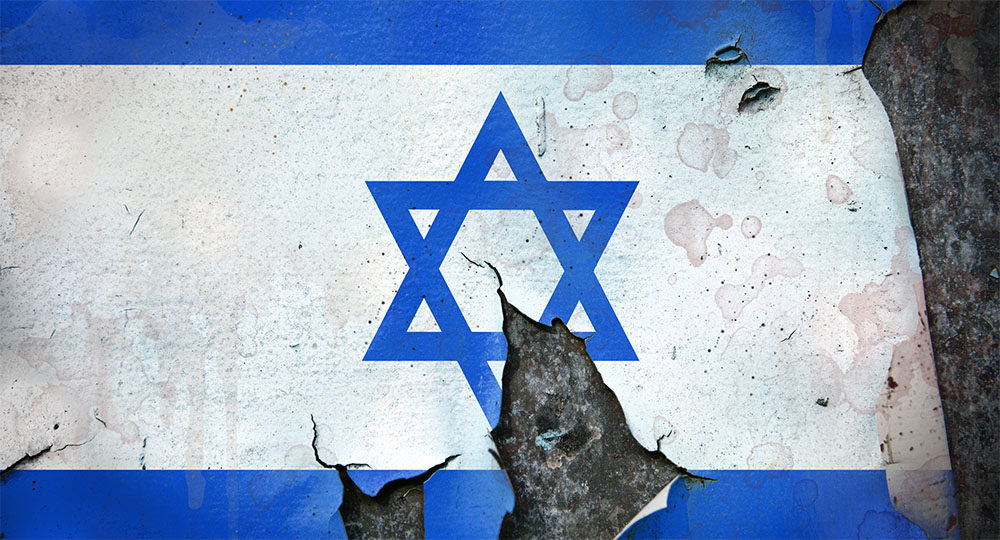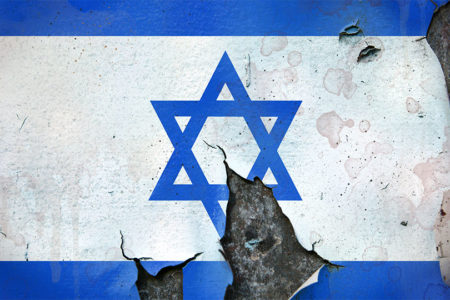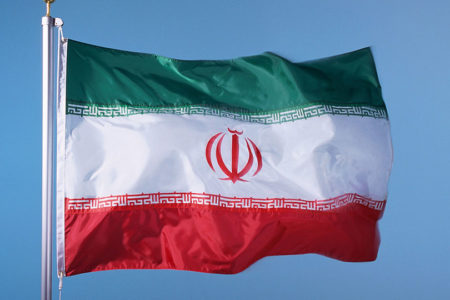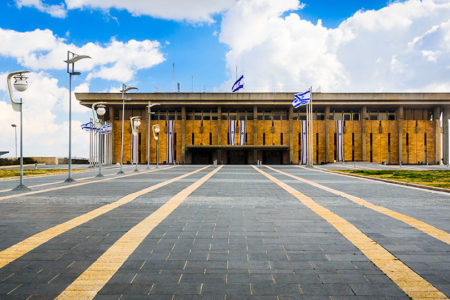Israel at 50: The Battle For Soil And Soul
To the casual observer of life in the Middle East, the real struggle there appears to be about the issue of soil. Israeli Jews and Palestinian Arabs are arguing over “land rights.” At times, this struggle has erupted into violence over how much soil each group will control. While land does lie at the center of the Arab-Israeli conflict, there is another battle being waged in that land—an internal struggle among the Jewish people themselves. And it threatens to tear them apart at a time when they most need to be united. The turmoil has to do with the deep religious divisions among the Israeli population. It is a battle, not over soil, but over soul.
When later generations of rabbis explained why their nation was defeated by the Romans in 70 A.D., they laid the blame on the senseless hatred that had developed among the divisions of the people. In a very real parallel to those ancient days, the Israeli nation today faces a crisis within itself that is more serious than any threat from its Arab neighbors. Consider two recent events that serve as illustrations of this modern senseless hatred.
On Israeli Independence Day this past May, a group of Ultra-Orthodox Jews conducted a demonstration in Jerusalem in which they stomped on an Israeli flag rather than salute it. This particular group is among a very vociferous minority who reject the spiritual legitimacy of the modern state in which they live—and which grants them the freedom to perform such acts! Furthermore, other Orthodox Jews vigorously protested a portion of the “Jubilee Bells” program that was part of the 50th Anniversary celebrations on the same day. The particular portion of the program they opposed consisted of a routine to be performed by the Batsheva Dance Company that the Orthodox viewed as obscene.
The more religious segments of the Israeli population have exercised their religious-political muscle for years by barricading their neighborhoods to traffic on the Sabbath. In the early 1980s, this effort was extended to stoning cars that drove through a religious neighborhood to a secular neighborhood on that holy seventh day. In 1988, some of my students and I found ourselves right in the middle of an Orthodox confrontation with police on the ground floor of our hotel. The issue? A restaurant next-door had dared to open on the Sabbath. Most of these incidents occur in Jerusalem, which has a much higher religious population than other Israeli cities. An old ditty declares of the three largest Israeli towns: “While Haifa pays, Tel Aviv plays, but Jerusalem prays.”
Recently, however, religious strife has not been limited to Jerusalem. The mostly secular Petah Tikva is very near to Bnai Brak, the Israeli city with the highest percentage of Orthodox Jews. The simple attempt to open a cinema on Friday evening in Petah Tikva has led to some very ugly confrontations and physical violence. Similar events are taking place in other Israeli towns where the religious communities are growing.
The Sabbath is not the only concern of the Orthodox in Israel. In the last decade, Israeli archaeologists have had to contend with religious zealots who stone their workers if they uncover human bones, which they believe must not be defiled by being disturbed. The excavator of the City of David, Yigal Shiloh, was seriously injured in such an attack by stones thrown by one of these self-appointed “archaeology police.” Sometimes the concerns of the religious demonstrators find their basis in commendable causes, morality not the least among them. A few years ago, a large number of Jerusalem bus stops were torched by zealots who were upset because the walls displayed advertisements featuring swimwear—a violent act for advertising they considered immodest and unacceptable in public.
The violence and ignoble deeds have not all been from the religious side. Some Orthodox worshipers, arriving for morning prayers, have found dead pigs on the thresholds of their synagogues. Religious youth are regularly mocked and shamed by their secular counterparts in the military and in certain mixed schools.
While some may say that such interreligious strife can happen anywhere, the serious and growing nature of this conflict is eating at the very vitals of Israeli society. Many secular Israelis (the majority of the population) call the conflict a “culture war.” At stake is what kind of state Israel will be in the next 50 years: A Jewish state in which respect for the Sabbath is legislated and Jewish law adopted? Or a live-and-let-live state of civil laws for all kinds of Jews and non-Jews?
In a sense, the conflict is inevitable. Israel is a democracy—some believe the only real democracy in the Middle East. At the same time, it desires to be a “Jewish state” where the majority of its citizens are Jewish and enjoy benefits that are not enjoyed by those of other faiths. Presently, this is witnessed to most eloquently by the Law of Return, which bestows immediate citizenship on any Jewish person who desires to immigrate to the land of his or her fathers. Granted, Israel should be allowed to decide its policies without the interference of other people, but how can it be a democracy, which does not legislate religious belief and practice, and still call itself a “Jewish state”? Conflict is inevitable in such a situation. Perhaps it is a conflict endemic to that part of the world, a conflict that abounds without apology in situations that appear so contradictory to us in the West, who are accustomed to the doctrine of the separation of church and state.
How, then, one might ask, has Israel survived so well and prospered for 50 years if the system is so flawed? The answer of divine protection certainly cannot be disallowed. So many events and situations over the last 50 years are simply unexplainable apart from the truth that “he who keepeth Israel shall neither slumber nor sleep” (Ps. 121:4). In amazing ways, Israel has been kept intact—in spite of itself. There are some factors, however, that must indeed try even the divine patience.
For example, the religious divisions are not new. From the earliest days after the War of Independence (1948–49), relations between the secular and the religious were marked by suspicion and disagreements. In the face of extremely hostile neighbors, however, there had to be at least the appearance of a united front. They basically, therefore, cut a deal for coexistence: Secular Israelis would mind the public and political realms—the military and the government—while the Orthodox would look after private, religious affairs—marriage, burial, and conversion. But a remarkable, although slow, transformation has taken place over the years. The Orthodox have begun to amass political power, while secular politicians are trying to wrest marriage and conversion away from the Orthodox.
It is difficult to arrive at exact proportions, but probably less than 25 percent of Israelis could be called religious in the Orthodox sense. Some of these are far more extreme than others. The secular majority argues that while it is pushing for pluralism, the Ultra-Orthodox are trying to impose their will on everyone.
Insightful observers of the Israeli scene, however, have been able to discern that this is not just a religious issue. It is an issue that has to do with power—political power, at that. How can a distinct minority wield such a powerful influence in the life of a nation? The answer lies in the nature of the Israeli political system, which is made up of a mosaic of parties. There are at least a dozen, by current count, with new ones appearing and others dissolving and merging every so often. No one party has ever won the majority of the Israeli popular vote. Therefore, a government by coalition has been in existence since the beginning of the state. This means that the major party (either Labor or Likud) that wins the most votes has to assemble a coalition with smaller parties to achieve a majority of seats in the Knesset (Parliament), so that a government can be formed. A smaller party is often the one that insures the coalition. Thus, its power may be much greater than the number of its constituency or its members in the Knesset.
The Labor coalition ruled the country from 1949 until 1977, when Menachem Begin’s Likud coalition took over for the first time. Alternates of these two coalitions have ruled since then, with Benjamin Netanyahu’s Likud presently in power.
Currently, there are three religious parties in the Knesset—the National Religious Party, the Shas, and United Torah Judaism. Because no government can afford to alienate its religious parties, Israel’s secular majority is unable to pass laws opposed by the minority.
There is perhaps no better illustration of this situation than when the government of Menachem Begin was nearly brought down over the issue of Israel’s airline, El Al, flying on the Sabbath. For years the airline had done just that, to the ineffective disapproval of the religious parties. But these parties were so essential to Begin’s ability to rule that when they threatened to bolt from the coalition, the Likud agreed to back a no-Sabbath flying policy in the 1981 elections. This led to the near bankruptcy of the airline and then to its national financial rescue through massive subsidies. Today, El Al does not depart or land on the Sabbath, to the delight of the Orthodox and the airline’s competition, but to the frustration of nearly everyone else.
It should not be concluded from this brief survey that the religious Jews are the only transgressors in this drama. The situation among the secular and sacred in Israel does illustrate, however, that religion does not insure godliness and charity in all its adherents. It also should be noted that the increasing Orthodox influence does not bode well for those who desire to share their faith—a freedom cherished by Christians who believe the gospel. While freedom of religion is part of Israel’s basic laws, there are subtle ways in which pressure is brought to bear on Jewish believers. Furthermore, the present effort by some religious politicians to forbid all literature that seeks to present the gospel has raised great concern among Israel’s evangelical Christian friends, who believe that Jesus commanded all of His followers to share the good news.
These conflicts should remind us that all is certainly not yet “holy” in the Holy Land. Such conflicts within a people who are already a minority, not only in the Middle East but worldwide, should cause great pain to all of us who love Israel. It should also cause us to long and pray even more fervently for the day on which the King of kings will bring true shalom, joy, and reconciliation to the children of Abraham. They will never be truly one until they serve Him together. “And his feet shall stand in that day upon the Mount of Olives…And the Lᴏʀᴅ shall be king over all the earth; in that day shall there be one Lᴏʀᴅ, and his name one” (Zech. 14:4, 9).







